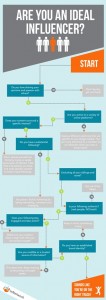
Every worker deals with some degree of stress in the workplace.
However, compared to their white-collar counterparts, workers in frontline or low-wage jobs may be more susceptible to certain stressors, or to experiencing entirely unique stressors. Frontline stress, when unaddressed, doesn’t just sabotage morale, productivity, and retention; it also has a very real impact on the bottom line.
In fact, in the U.S. alone, workplace stress costs businesses roughly $ 300 billion a year as a result of absenteeism, reduced productivity levels, and employee turnover, according to a study conducted by the American Psychological Association.
When choosing the people your business is going to depend on to send your customers away happy, it’s important to consider not only the duties required to succeed in the job, but the environment in which the job is being performed. No two industries, companies, or jobs are the same, and the secret to curbing the negative consequences of stress lies, in part, in the details.
3 Common Stressors of Frontline Employees
In order to control these negative effects in the workplace, organizations must understand the primary stressors that impact frontline employees. A recent commentary published in Industrial and Organizational Psychology: Perspectives on Science and Practice outlines three major contact center stressors that have the largest impact on employees.
1. Outsider Mistreatment
Frontline workers’ livelihoods depend on their ability to communicate with frustrated customers. Agents must handle callers with a wide variety of issues, personalities, and temperaments either on the phone, through live chat, or in person.
Doug Pugh, Ph.D., chair of Virginia Commonwealth University’s Department of Management, explains, “[Contact center work] is hard work and it drains people just like physical or mental labor might.”
Placating customers – lots of them, over and over again – takes a truly special type of worker, and understanding the importance of each job’s requirements is critical. Oftentimes, companies fail to make the connection between the aspects of the job and the collection of skills, motivations, and abilities a candidate brings to the table (and whether or not they truly complement the challenges of the role) in favor of filling seats as quickly as possible. In doing so, they potentially miss out on applicants with the skills to handle this type of daily pressure.
2. Continuous Performance Monitoring
Electronic monitoring has become a common practice in the workplace, especially among companies that employ frontline workers. Collecting workforce data in and of itself isn’t a bad thing – it’s actually incredibly useful in terms of improving quality of hire, quality of service, and helping gauge an employee’s strengths and weak points so they can improve.
Former HR Director Kate Bischoff elaborates on the potential benefits that come from monitoring, explaining “Organizations can reap business intelligence from knowing what their employees do every day.”
While companies can reap great rewards from this type of monitoring, it also can lead to a stressful situation for employees by putting pressure on frontline workers to maintain a high level of performance. The Canadian Mental Health Association details how instead of pushing employees to perform better, oftentimes it causes frontline employees’ performance to suffer, potentially impacting productivity and quality of service.
“Employees who start to feel the ‘pressure to perform’ can get caught in a downward spiral of increasing effort to meet rising expectations with no increase in job satisfaction,” the report explains. “The relentless requirement to work at optimum performance takes its toll in job dissatisfaction, employee turnover, reduced efficiency, illness, and even death. Absenteeism, illness, alcoholism, ‘petty internal politics,’ bad or snap decisions, indifference and apathy, lack of motivation or creativity are all by-products of an over stressed workplace.”
While some companies and industries have a higher volume of customers than others, it may be to the benefit of the organization to assess both the current expectations of the role as well as the skills it takes to meet those expectations. While not every candidate will have the capacity to maintain sustained performance at a high level, there are certain critical qualities necessary for success hiring managers can look for in candidates who do apply to open positions.
3. Environmental or Physical Stressors
Physical discomfort isn’t always considered as a factor that can impact and agent’s job performance. However, it does have a marked impact on productivity, morale, and quality of service. Sitting at a desk for long periods of time can be hard on an agent’s body, especially if breaks are limited.
Additionally, the multitasking required for the job – answering phones, keying in information, and talking with the customer – can, according to Customer Service Consultant Jeff Toister lead to cognitive wear-down. Toister explains, “It takes conscious effort to focus on a phone call and the various tasks contact center agents have to complete, but we amplify the need for that effort by giving agents so many opportunities to multi-task.”
Having agents that are not able to fully focus and multi-task in work environments that are loud, crowded, and distracting can greatly effect overall production and customers satisfaction.
Trying a New Approach with Predictive Hiring
Filling seats quickly enough in a high-volume frontline hiring environment certainly presents its challenges. However, companies should take the time to examine the root causes of what’s causing absenteeism, diminished quality of service, and attrition will be able to gain a better understanding of how to curb these issues.
While frontline work environments like contact centers tend to have certain inherent stressors, finding workers who have the skills, knowledge, and abilities that mirror those that are important in both the context of the job as well as the organization and industry can help alleviate stress throughout the workplace, minimize employee turnover, and boost employee morale.
Business & Finance Articles on Business 2 Community
(60)







